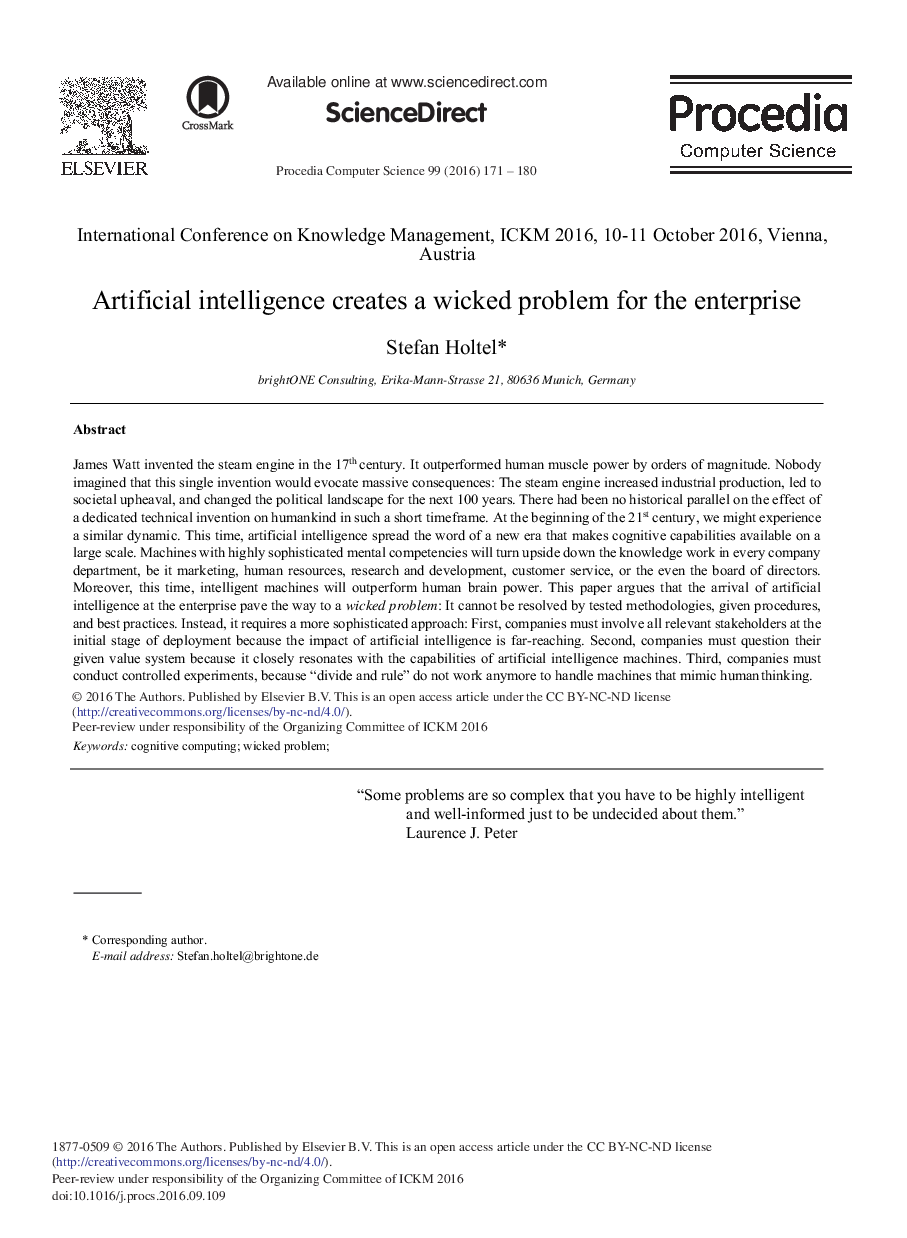| کد مقاله | کد نشریه | سال انتشار | مقاله انگلیسی | نسخه تمام متن |
|---|---|---|---|---|
| 4961912 | 1446516 | 2016 | 10 صفحه PDF | دانلود رایگان |
James Watt invented the steam engine in the 17th century. It outperformed human muscle power by orders of magnitude. Nobody imagined that this single invention would evocate massive consequences: The steam engine increased industrial production, led to societal upheaval, and changed the political landscape for the next 100 years. There had been no historical parallel on the effect of a dedicated technical invention on humankind in such a short timeframe. At the beginning of the 21st century, we might experience a similar dynamic. This time, artificial intelligence spread the word of a new era that makes cognitive capabilities available on a large scale. Machines with highly sophisticated mental competencies will turn upside down the knowledge work in every company department, be it marketing, human resources, research and development, customer service, or the even the board of directors. Moreover, this time, intelligent machines will outperform human brain power. This paper argues that the arrival of artificial intelligence at the enterprise pave the way to a wicked problem: It cannot be resolved by tested methodologies, given procedures, and best practices. Instead, it requires a more sophisticated approach: First, companies must involve all relevant stakeholders at the initial stage of deployment because the impact of artificial intelligence is far-reaching. Second, companies must question their given value system because it closely resonates with the capabilities of artificial intelligence machines. Third, companies must conduct controlled experiments, because “divide and rule” do not work anymore to handle machines that mimic human thinking.
Journal: Procedia Computer Science - Volume 99, 2016, Pages 171-180
